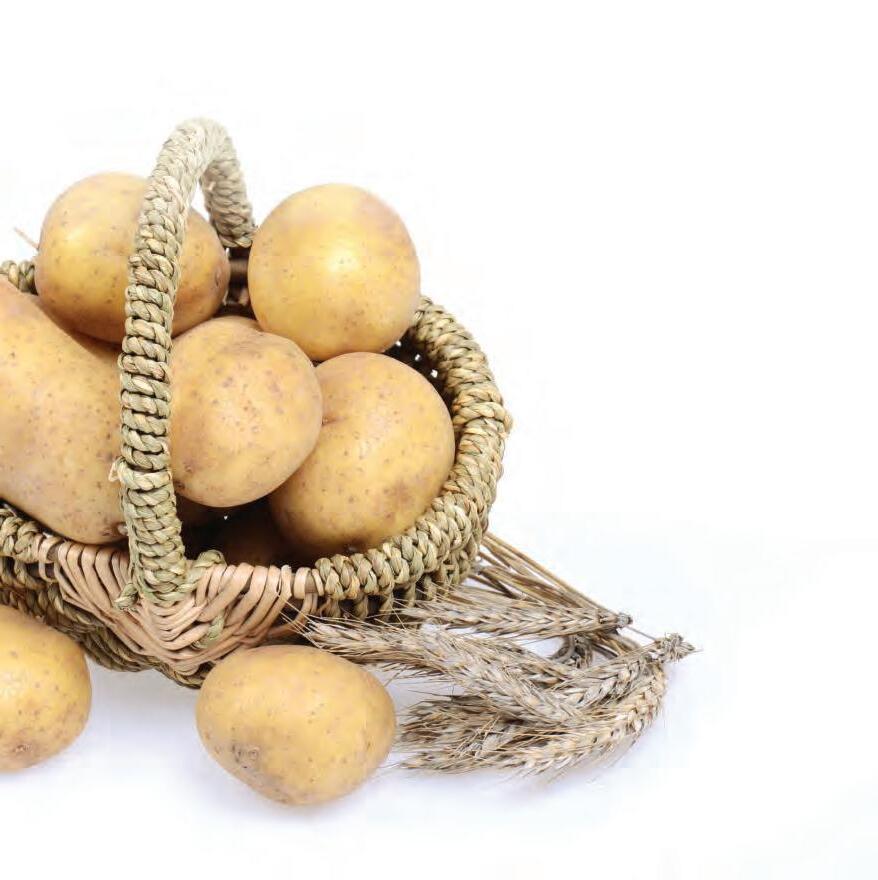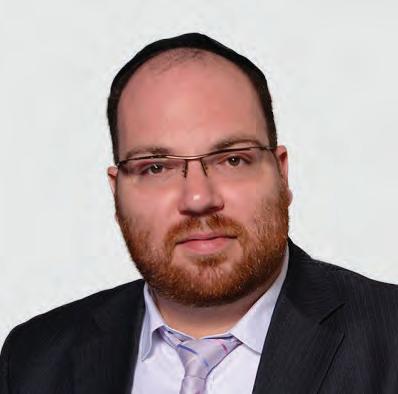
11 minute read
KEEPINg KOshER IiN GHANA
By Leigh Hershkovich
WOn the west coast of Africa, a six hour flight from Johannesburg, in a world where modern day technology and where even less modern inventions, like a post office, are impossible to come by, lies the city of Accra, Ghana. Jewish population: 150. Here, in this small, rural community, in the midst of one of the world’s lesser known third world countries, the Jewish population is slowly growing and thriving. Kosher food may be difficult to come by, but it is not impossible to find. With a bit of ingenuity and creativity, a kosher lifestyle can be found even in the far-flung locations.
Advertisement
The Jewish population of Ghana, mainly Israeli and French businessmen and women, are drawn to Accra because of its low labor and living costs. Here, a job as a contractor, engineer, computer technician, and more are easily found and offer a better pay than in Israel or France. Other resources, such as kosher food, are not as easily accessible as the job market. Up until 2015, the Jewish families within the community were served by bochurim and young shluchim who frequented Ghana for the high holidays, Purim, and Pesach. “Not only was kosher food minimal,” shared an Israeli woman, whose family has been living in Ghana for three years, “food is minimal. The grocery stores here have a policy: They will not restock on basics—flour, eggs, sugar—until the entire store has emptied out.” For many years, the community struggled to keep the kosher spark alive, resorting to a vegetarian lifestyle. That is, until Rabbi Noach and Alti Majesky and their three children arrived on the scene.

The Majeskys moved to Ghana during the summer of 2015 and went straight to work to provide a sustainable kosher atmosphere for the dozens of families that had made Accra their home. Not only were they shocked by the lack of food in town, but by the sheer depravity of the community as a whole. “There are no post offices here.
Our homes don’t have addresses. We can’t have food shipped from Johannesburg to Accra. If we want food, someone has to bring it to us in a suitcase.” Kashrus in Ghana is no easy feat, but it is one that the Majeskys tend to with pride. Rabbi Majesky schechts imported chickens, which is the main source of protein. Meat and dairy products are a treat reserved for special occasions and holidays. The Majeskys rely on visitors and businessmen arriving from South Africa or Israel for the bulk of their food. Travelers and tourists are sparse in Ghana, as the country itself is not a hotspot or tourist destination, but sometimes, they get lucky.

Chabad of Ghana currently serves the local Jewish community with a Hebrew School, weekly Shabbat dinners, holiday events, weekly Torah classes, and much more. When it comes to dishing up the meals for each event, Mrs. Majesky has her hands full. “When we first moved here from Crown Heights, I almost forgot that I couldn’t just walk down the street to the bakery to buy a box of cookies. If we want anything, we have to make it ourselves from scratch with whatever we have on hand.” Once the food has been procured, the next challenge comes in storing it. Blackouts are fairly common in Ghana, often times occurring once a day. Many of the families have equipped their homes with generators, but still; some days, all they can do is pray that the food won’t spoil until the electricity returns.
Holidays in Ghana are something to behold. Every holiday was celebrated at the Chabad House this year, with an array of dishes and treats ranging from four course meals for Rosh Hashana, to homemade latkes and doughnuts on Chanukah. Even Pesach, a holiday that often proves to be tricky in the easiest kosher accessible cities, was done in style. Friends and family arrived from around the world to help the Majeskys prepare, bringing over ten suitcases worth of food in tow. The preparations for each holiday begin well over two weeks in advance, with food being prepared and stored in the Chabad House freezer, which luckily stayed cold until Passover! This year’s seder fed close to one hundred people of varying backgrounds and affiliations—one big happy, well fed Jewish family.
Regardless of the extra effort kosher food requires, many feel that kashrus in Ghana itself is much less difficult than they expected, especially considering where they are on the map. “There are no playgrounds, no gyms; it’s so hot that we spend most of our time in school or outside,” Mrs. Majesky shared. “Because we can’t spend much time outside, we spend most of the day in the kitchen. I think we’re better fed and healthier here than we would be anywhere else.”
Rabbi Don Yoel Levy CEO/Kashrus Administrator
From the Desk of Rabbi Don Yoel Levy Is Vodka Always Kosher?
L’chaim, anyone? Kosher consumers have long enjoyed a l’chaim after shul, to commemorate a yarzheit, to celebrate simchos, or just to relax at home. Whether it’s a glass of wine, a bit of schnapps, or a lowball glass of whiskey or vodka, there have always been an array of options available.

Recently, there has been much talk concerning whiskey production and the implications for kosher consumers. Most of the controversy has centered on scotch, both straight and blended. Originally, it was assumed that wine or glycerin was used to blend the whiskeys; both of which could present kashrus issues. Today, we know that the main issue with whiskey is the wine casks used in the aging process.
But, what about vodka? Does vodka have similar issues to whiskey? Are there other potential issues that affect the kosher consumer? First, let’s review the vodka production process in brief. The origin of vodka is assumed to be either in Russia or in Poland (for many years Poland was actually part of Russia) and I have visited vodka production facilities in both countries. Historically speaking, it is reported that vodka was made from potatoes. In other places, vodka was made from wheat. There are other sources, as well, which we will discuss later on in this article.
In order to produce any type of alcohol, one needs a carbohydrate, in a sugar form, and yeast. Wine, for example, is produced when the natural yeast on the grapes and the sugar content in the grapes reacts and causes fermentation. The percentage of alcohol in the particular wine will depend on the sugar content in the grapes.
For vodka, one takes the source carbohydrate (potatoes or wheat), grinds them up, adds water and heats the mixture. This will convert the starch to sugar. Then, yeast is added to the mixture. The yeast used in vodka production is manufactured yeast, as opposed to the natural yeast found on grapes. Of course, we have to verify that the yeast is kosher certified. During the fermentation process the mixture often foams, so anti-foam agents might be used to quell the foam. These anti-foams must be kosher, as well.
The fermentation will produce up to 12-14% alcohol. In order to produce whiskey, which contains 40-45% alcohol, the alcohol is distilled to remove the water until it reaches the desired alcohol content.
Vodka, however, is distilled until it reaches almost pure alcohol. This takes usually at least three distillations. Hence the terminology “triple distilled” found on vodka bottles. The vodka is now “cut”, or diluted, with pure distilled water to bring it down to the desired alcohol content.

The distillation process removes most of the impurities in the vodka, so a side benefit of drinking vodka is the possibility of less of a “hangover” after drinking, as opposed to wine or whiskey. Vodka is sold as pure and colorless. If it were aged in barrels, it would turn brown, so the issue of wine casks for aging (like whiskey) does not occur with vodka production. Very few types of vodka are aged, but it’s atypical and would be obvious due to the brown coloring.
In some countries, sugar or glycerin is added to the vodka in order to improve the smoothness of the vodka, but in Poland this is illegal and all vodka is required to be totally pure. In Poland, potatoes are used to make the vodka. I had hoped that there would be a possibility of producing kosher for Passover vodka, but the equipment used in the production is also used for wheat-based alcohol, so at present this is not possible. In Russia, I have seen that they actually add other ingredients to the vodka, so Russian vodka should not be treated as pure vodka.
Another big issue with vodka is that not all vodka is made from potatoes or wheat. There are many companies producing vodka from wine alcohol or whey (which is dairy and usually not Cholov Yisroel).
I have done some research and so far have found at least 18 companies in the United States producing vodka from grape alcohol. (By the way, some American whiskey is also produced from grape alcohol.) Over the years I have also found vodka produced from whey in the United States. In France, I found three companies producing vodka from grape alcohol, as well as four companies in Australia, and one each in Denmark, Poland, Belarus and Canada. In New Zealand, I found three companies producing vodka from whey. Usually, the bottles will state the source carbohydrate used to produce the vodka.
As we can see, to make a blanket statement that all vodkas are inherently kosher is not correct. The source of the alcohol must be kosher and we must ensure that no other ingredients are being used in the vodka.
Meet
WHO’S BEHIND THE ~
Interview with Rabbi Arye Taub

Rabbi Arye Taub
KS: Where did you grow up? Where did you go to yeshiva?
AT: I grew up in Petach Tikva, which is a large city with a very diverse population: Chassidish, Chabad, Litvak, Mizrahi, Ashkenazi, Sephardi, Yemenite, etc. All the communities shared true kindness and friendship; it was a good place to grow up.
I went to Birkas Yosef Yeshiva in Bnei-Brak; a small, welcoming place, where one could forget about outside concerns and devote oneself to Torah studies.
KS: What did you do after yeshiva?
AT: I married Chana Shendl Stefansky in 5766. I had always been interested in computers, so when I started working it was evident that I would be taking that direction. At first I worked as a tech support representative, and soon became a networking equipment field rep. After leaving the IT world, Rabbi Haskel, Director of ~ Israel – with whom I daven on Shabbos – offered me a kashrus job doing Cholov Yisroel supervision in California for a whole month. I had never seen so many cows and had never traveled for work, even for a single day, but that was the beginning of my kashrus career. Soon after, Rabbi Prizant, a Rabbinic Coordinator at ~ Israel, recruited me to assist in the China department, where I worked for 4 years before taking on my current responsibilities.
KS: What is your current position at the ~?
AT: I work in ~ Israel as a Rabbinic Coordinator for companies in Europe, Scottish distilleries, and shaatnez issues. I am also the Israel office liaison to the main ~ office in New York.
KS: What prepared you the most for your current position at the ~?
AT: Working in the ~ requires countless abilities. In my opinion, human relations, aka middos, is the key to success. While working as a field rep in the networking world, I came across many companies and facilities. The clients I deal with now are obviously different, but all companies have something in common: If you have a good approach, enough assertiveness, and Siyata Dishmaya, you can get through to them and succeed in working together.
KS: What is best thing about working at the ~?
AT: The best thing about working at the ~ is the opportunity to grow and become a better person through the influence of so many great colleagues, as well as being able to utilize what I learn with colleagues and clients.
KS: How would you describe the ~ today?
AT: The ~ is an ever-growing organization, with a devoted, caring, active team who drives the ~ to a place where no other global organization has probably ever been: seeking to set up and maintain facilities at a kashrus level equal to a frum balabusta’s kitchen with all of those stringencies. It is an amazing goal, directed and driven by Rabbi Don Yoel Levy, who applies this goal to each and every certified facility.
As I mentioned, I work in the ~ Israel office. The Israeli branch could have never grown as it has without the leadership of Rabbi Haskel, who respects and encourages each and every person in our office. This is the fundamental core of the Israeli branch: because of Rabbi Haskel, everyone knows that the sky’s the limit, and that we should never stop trying.
KS: Tell us something interesting about yourself that we don’t know
AT: I am as emotional as it gets, a Classical music fan, and I love my family more than anything else in the world.
KS: Can you share an interesting experience that you had while working at the ~?
AT: Sometimes, language, even body language, is just not enough. During my 2nd job at ~ Kosher, I was part of a team in Bulgaria, which worked filtering and bottling wine. I was just about to start the pump when I asked the local worker if he could see whether the top of the 15-ton vat was open, so that the pump pressure wouldn’t destroy the vat. He shook his head.
I was very upset, because that meant that someone had touched it without my consent and that’s a big deal. So I asked him again, and once again he shook his head. I had to run upstairs to check the top, but it WAS open, as it should have been. At the same time, I saw another worker, standing next to the first, laughing out loud for no obvious reason. I asked him what the matter was, and he explained to me: “Bulgarians shake their heads to signal ‘yes’ in exactly the way the rest of the world uses for ‘no’, and vice versa.” Moral of the story: Even the most basic, common assumptions can sometimes be deceptive. And that’s more or less the gist of Reb Levi Yitzchok of Berditchev ZT”L’s lessons.
“
What Other People Say
Rabbi Arye Taub
“ In today's kashrus world, being multifaceted is of great importance. Reb Arye's knowledge of kashrus, computer savvy and administrative skills make him a wonderful asset to our organization and a prime example of what the ~ seeks in an employee.”
Rabbi Don Yoel Levy
Kashrus Administrator
“ Rabbi Arye Taub is blessed with a rare combination of thorough halachic knowledge, unusual understanding of technology, and computer savvy. These qualities allow him to serve the ~ system in the best way possible. When he goes to a facility, he is armed not only with comprehensive knowledge of the kosher issues, but also with the ability to perfectly understand even the most complex production processes, such as those common in the oil industry and food chemical industry. Additionally, he has great people skills, which ensures he will get along with people of all types and nationalities. And last, but not least, Rabbi Taub is blessed with extraordinary creativity. Once and again he demonstrates his ability to come up with a creative solution for a kosher problem, without compromising in any way the high kosher standards of the ~.”
Rabbi Ahron Haskel
Director of ~ Israel







